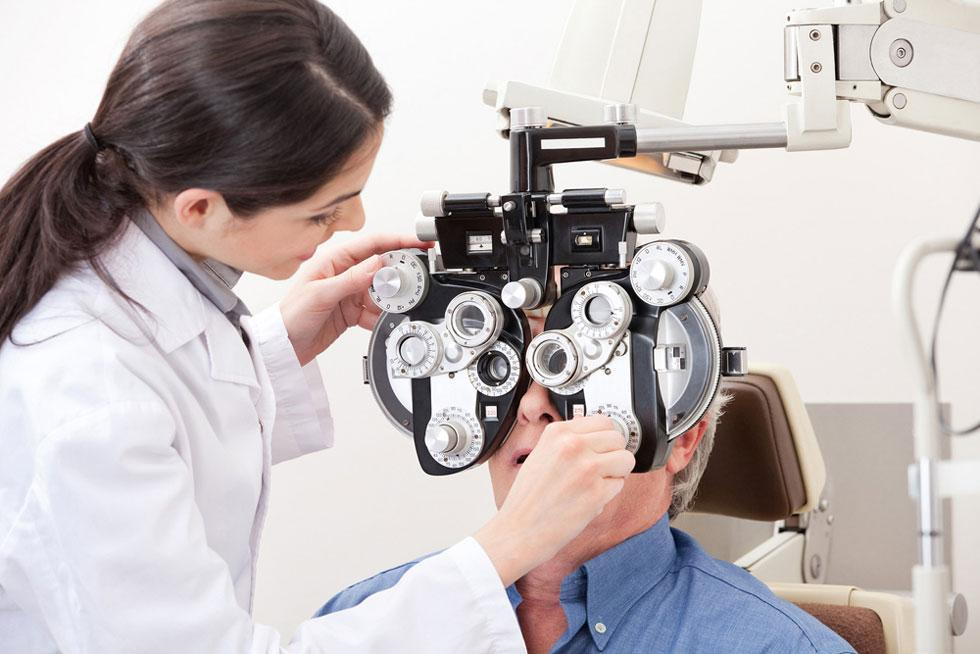Featured
Table of Contents

Normal eye exams are essential for keeping good vision and spotting possible eye wellness concerns early. However, the regularity of these tests can differ considerably based upon a person's age, lifestyle, and overall health and wellness. Comprehending the suggested schedule for eye tests can help make certain that individuals of all ages receive ideal care and tracking for their eye health.
Infants and Toddlers (0-2 Years)
For infants and toddlers, eye exams are critical for discovering any kind of potential vision troubles early on. The American Academy of Ophthalmology advises that a kid's initial eye examination ought to occur at around six months of age. During this first check out, the eye treatment specialist will certainly evaluate the youngster's visual development and look for any evident eye issues.Following this very first test, it is advised that youngsters have an additional eye test at age three. This browse through will certainly focus on assessing the kid's total visual feature, including eye alignment and the capability to track items. If no concerns are discovered, the next examination ought to be scheduled before the child begins school, commonly around age 5 or 6.
School-Aged Youngsters (6-18 Years)
Routine eye examinations ought to be scheduled every one to 2 years once children get to institution age. Vision is important for finding out and growth, and many institutions carry out vision screenings. These testings do not change a detailed eye exam by an eye care professional.For kids included in sporting activities or tasks needing substantial visual focus, annual eye tests may be advisable. Additionally, if a child displays indicators of vision issues-- such as problem checking out, squinting, or constant frustrations-- a see to the eye physician ought to be arranged as soon as feasible.
Youthful Adults (19-39 Years)
Young person generally have less vision modifications than older age, but normal eye tests stay vital. The general suggestion is to arrange an eye examination every two years throughout this duration. People with details threat elements-- such as a family history of eye illness, diabetic issues, or those who wear contact lenses-- ought to take into consideration yearly eye tests.In addition, those who invest considerable time on electronic tools might experience electronic eye pressure. If signs and symptoms such as dry skin, tiredness, or obscured vision take place, it might be smart to see an eye care professional quicker.
Grownups (40-64 Years)
As individuals go into middle age, the possibility of establishing vision troubles boosts. Grownups aged 40 to 64 must schedule eye examinations each to two years. This age may begin to experience presbyopia, a natural age-related problem that makes it challenging to focus on close objects. Eye examinations can additionally help discover various other typical age-related conditions such as glaucoma, cataracts, and macular degeneration.If individuals in this age have risk variables like hypertension or diabetes mellitus, they might require even more frequent assessments to monitor their eye wellness carefully.
Seniors (65 Years and Older)
For elders, routine eye examinations end up being even much more important. The American Optometric Association recommends that people matured 65 and older have an eye test at least when a year.Final thought.
Comprehending the proper timetable for eye exams based on age is important for preserving optimal eye health and wellness throughout life. By sticking to these guidelines and seeking advice from with an eye treatment professional, individuals can take aggressive steps toward protecting their vision and total health and wellness.Table of Contents
Latest Posts
Host Your Perfect Occasion: Location Rental Alternatives for each Event
Published en
1 min read
Host Your Perfect Event: Venue Rental Alternatives for each Occasion
Published en
1 min read
The Boogaloo Sports Bar & Grill at FunCity Resort Hotel: Where Fun Satisfies Flavor
Published en
1 min read
More
Latest Posts
Host Your Perfect Occasion: Location Rental Alternatives for each Event
Published Mar 26, 25
1 min read
Host Your Perfect Event: Venue Rental Alternatives for each Occasion
Published Mar 23, 25
1 min read
The Boogaloo Sports Bar & Grill at FunCity Resort Hotel: Where Fun Satisfies Flavor
Published Feb 08, 25
1 min read